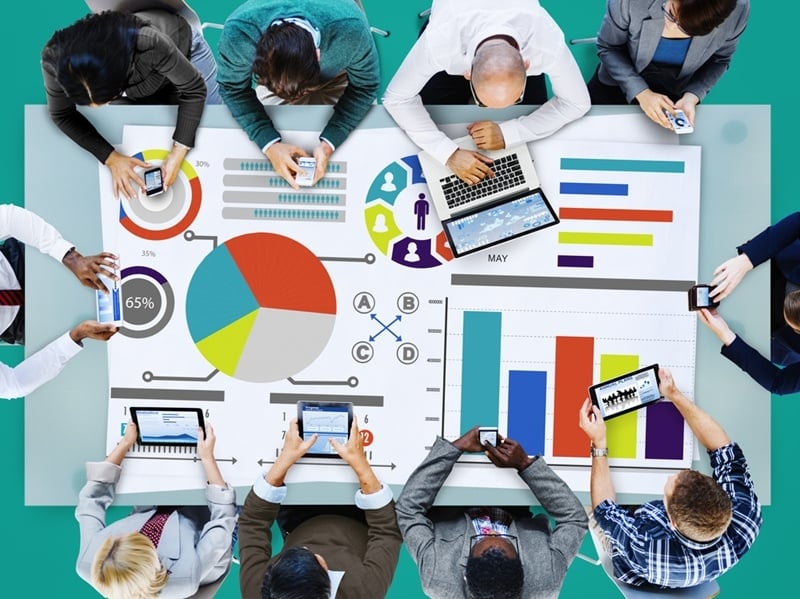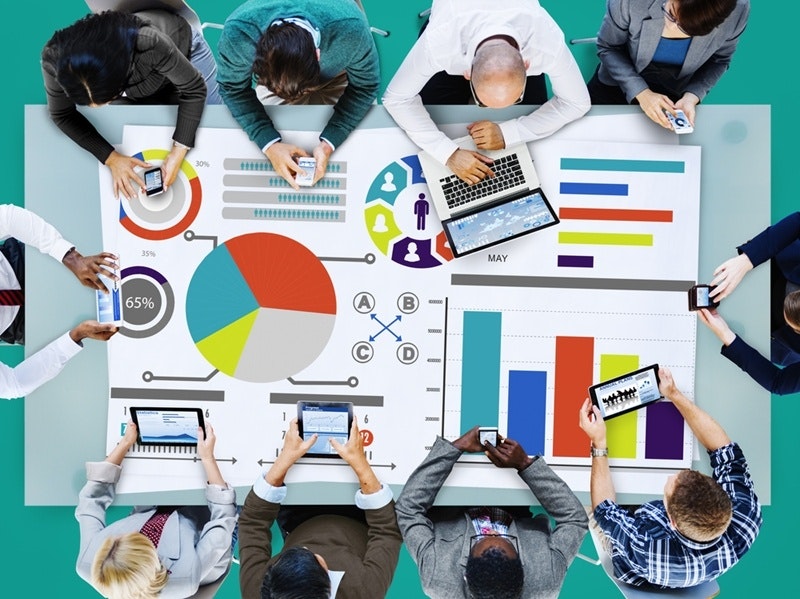Is data the world's new currency?
You might not see it on the Forex, but in the digital world, data is the world's new currency. Forget Bitcoin, information holds incredible value for a business, can be translated into any location, used in any market and is growing exponentially.
The latter point is particularly notable; IBM notes that 2.5 quintillion bytes of new data is created every day. That's many more bytes of data than there are cells in the human body. To put it another way, it's enough to fill more than 39 million 64-gigabyte smartphones each and every day.
The figures are staggering, and almost not worth wrapping our brains around - until we look at how much data can be worth.
The expansion of the digital universe has been so quick that in 2013, 90 per cent of all the world's data had been created in the past two years. The figures are staggering, and almost not worth wrapping our brains around - until we look at how much data can be worth.
Forbes writer Howard Baldwin found that the majority of senior-level managers (six in every 10, in fact) "acknowledge that big data is now a driver of revenues in its own right and is becoming as valuable to their businesses as their existing products and services".
When information is mismanaged, the result can be just as staggering. The Ponemon institute looked into the cost of an average data breach and found that businesses will typically take a hit of US$3.8 million if their records are lost or stolen, with every compromised record costing $154.
In short, it could take a lot of invoice finance to make up for a big data breach. Meanwhile, data can be used in a huge number of ways to boost company insight - and with it, revenue. We call this innovation big data.
What is big data?
Big data is simply the way businesses access and potentially analyse the huge amount of information in their business. The innovation is comprised of three things:
- The amount of data available
- The type and quality of data
- The speed at which businesses can access it

The value of information is in being able to make decisions quicker.
How is data used?
Imagine if you had a crystal ball that showed you the future of your business. Imagine having the next-best thing - a wealth of data that helps you understand customer preferences, market trends and gives you a better perspective for cash flow forecasting.
Armed with this information, small-business leaders can compete on a higher level, where higher revenues reside. They can get the jump on their competitors by tailoring their strategies, taking product development in a new direction and planning for future purchases. After all, knowledge is power.
They are also a step closer to automation, and slimming down operating expenses. If you take a minute to think about your current business processes, it's likely you can see areas where greater insight can help.
Big data can work best when combined with effective business finance. Small companies, as well as the big ones, can intricately gauge the market, judging the best times to spend and which conditions make it better to save.
Then, with a quality debtor finance facility under their belts, small businesses can quickly improve their cash flow at times when they need to buy, without having to wait for a bank loan to be approved - and without worrying about digging a hole of debt.

Cash flow can be maintained with debtor finance and data analytics.
Big data can work best when combined with effective business finance.
Getting the most of your new currency
For many small businesses, now might just be a time to collect data - filling their coffers with the valuable digital asset for a time when they can analyse it. For others, data might be something to invest in today in an attempt to leapfrog the competition.
However, any major investment should not be made lightly. As McKinsey & Company recently explained, the trick is to spend wisely, not spend more.
McKinsey found that big data can be a sounder investment than other IT innovations. In the banking sector, for example, the correlation between IT investments in general and the bottom line was rather slim (14 per cent). When money was spent on big data, that was closer to 36 per cent.
There is value out there, though it needs to be done in a sustainable way. This is another benefit of debtor finance. If you're planning on making better use of the world's new currency in 2016, Earlypay exists to provide almost immediate funding without the risk of a bank loan.
By accelerating the resolution of their invoices, small businesses get the money that belongs to them in the first place, though was otherwise locked away with their debtors. Your finance provider will unlock this, without putting a small-business owner's personal assets up as collateral.
If you want to look closer a funding your next business upgrade, be sure to contact the team at Earlypay on 1300 760 205 to get professional help with your finance options.
